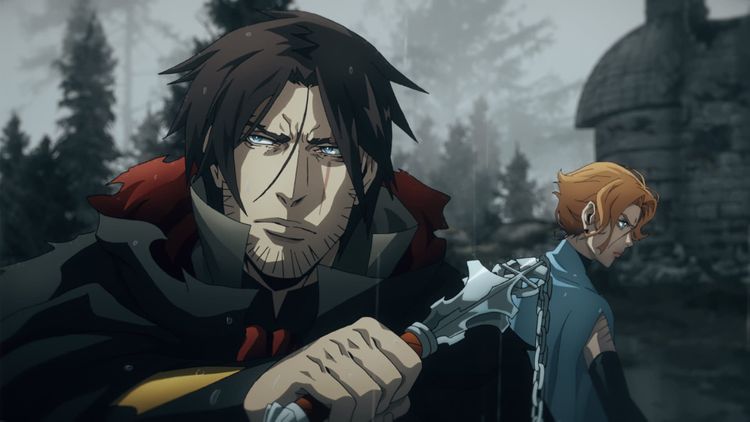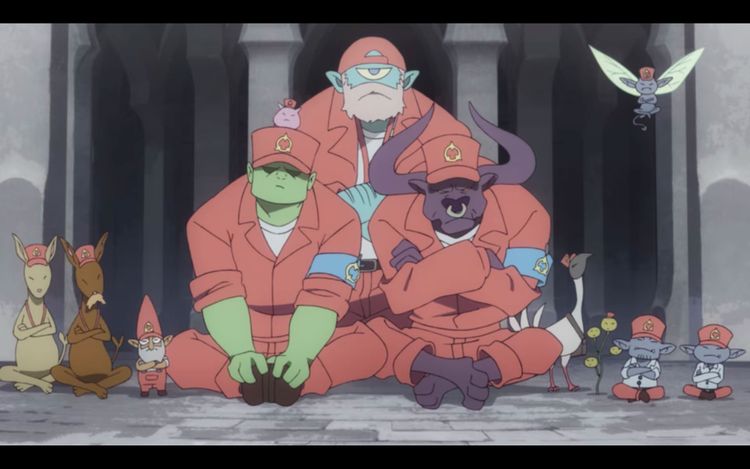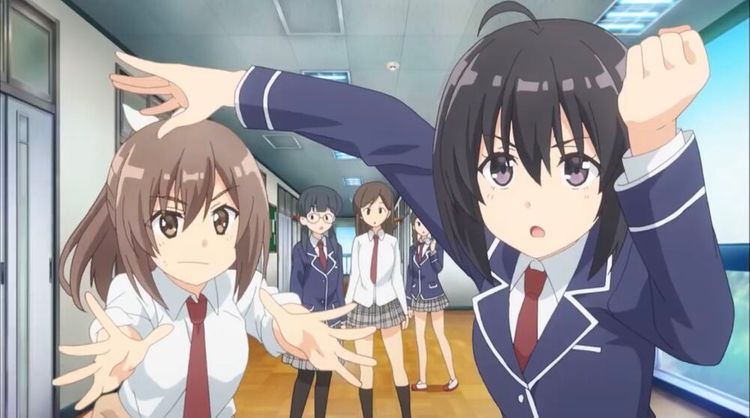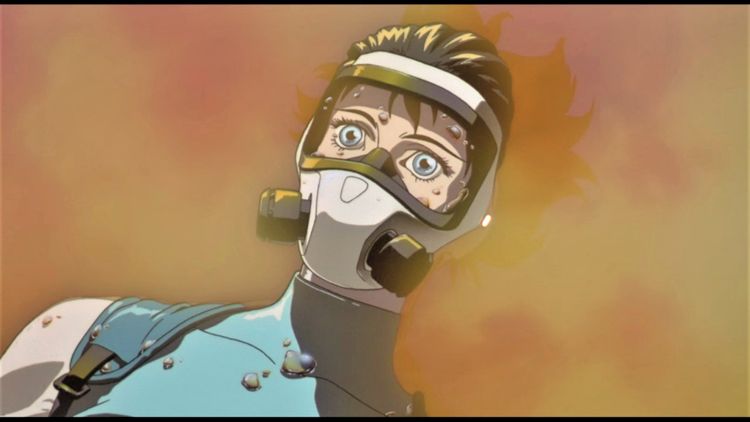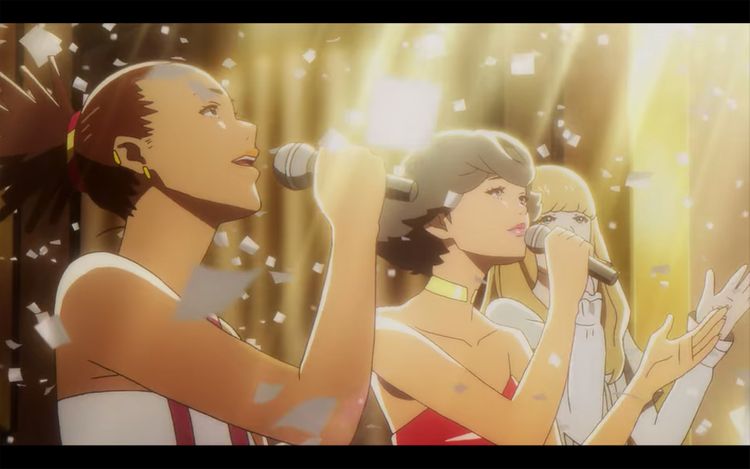Still Stuck in the System: Misplaced Optimism in Deca-Dence
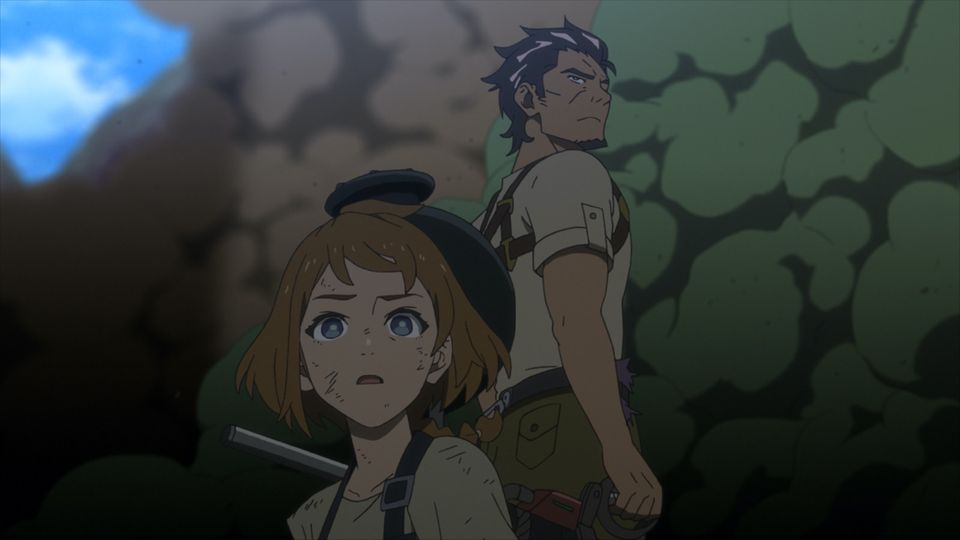
Not until the second episode of Deca-Dence do we learn that the titular fortress where humanity makes its last stand against the threat of Gadoll is in fact a role-playing game where cyborgs can assume flesh avatars and fight the artificially-created monsters for sport. In the game "Deca-Dence," humans are just NPCs – their lifelong suffering under the threat of Gadoll only offers texture to the contrived storylines that the cyborgs can enjoy as they improve their player rank.
The game, and the lives of every human and cyborg, are strictly monitored by the "System"-run megacorporation Solid Quake, which created Deca-Dence after acquiring the rights to manage humanity in the 25th century as pollution threatened their extinction. The corporation, driven by the directive, "There is no place for bugs in this world," strives for a society that would not repeat humanity's past mistakes. Thus, while humans have no knowledge of Solid Quake or the existence of cyborgs, and cyborgs themselves are programmed to follow the System's every command, should either exhibit irregular or unexpected behavior that threatens the System's so-called order, they will be designated "bugs" and promptly dispatched.

Through its myriad of allusions to the dystopian worlds we've read and seen, Deca-Dence could be critiqued for not offering anything of its own. But by presenting human Natsume and cyborg Kaburagi's experiences in parallel, the series is able to blend disparate symbols of dystopia in a single narrative revealing the extent of Solid Quake's authoritarianism. Despite going as far as adopting vastly different animation styles to distinguish humans and cyborgs, Deca-Dence unambiguously shows how they both suffer under Solid Quake, leading us to the conclusion that the only path to their freedom is destroying it and the System that created it.
As a jaded, formerly top-ranking player himself, Kaburagi's almost immediate arrival at this conclusion and his willingness to act upon it are a welcome change of pace in a medium that often prefers younger, inexperienced protagonists written to overcome the odds through hard work and optimism (though Natsume takes on this role somewhat). Over the course of just twelve episodes, Kaburagi destroys Solid Quake's Gadoll-producing factory, frees himself and his fellow cyborgs who have been condemned as bugs from prison, and saves the human race from a mutated Gadoll when the System would have left them for dead.

But even as Kaburagi performs these feats of rebellion against authoritarian capitalism, Deca-Dence doesn't give us the satisfaction of also seeing the end of the System and Solid Quake. When Kaburagi logs into the Deca-Dence controls to operate it in a last-ditch effort against the mutated Gadoll, he encounters the System itself. Their brief conversation betrays the series' own hesitation over uprooting Deca-Dence's poisoned roots, as the System reveals that Kaburagi's defiance is simply a phase in its evolution into a more robust System.
In other words, there simply is no destroying the System, although Kaburagi manages to influence it by seizing control and defeating the Gadoll. Three years later, in the series' epilogue, we see that Deca-Dence has expanded as humans and cyborgs begin to live together peacefully in a world where Gadoll are no longer threats. But as Kaburagi's old friend the cyborg Minato is revealed to be the new "Supreme Administrator" in charge of overseeing the System's updates, it appears that Solid Quake has not only been responsible for this expansion, but may also still hold the rights to humanity, given no evidence of the contrary. Thus, authoritarian leadership has merely changed hands as new methods of maintaining order are experimented.
A world where cyborgs and humans can coexist is a fine ending to the series, and given Kaburagi's reunion with Natsume after his heroic sacrifice, there's little more one can ask in terms of closure. But despite its exhilarating narrative of winning back our agency from corporate control, Deca-Dence seems to conclude that we can trust corporations with our lives if only the right people lead them, not far from what enterprises today strive to convince us through their commercialization of empathy. Such dangerous optimism – or pessimism with regards to any other solution – might be the symptom of our collectively limited imagination about a future free of inequality and dominion. Or perhaps I just hoped for better hundreds of years from now.




